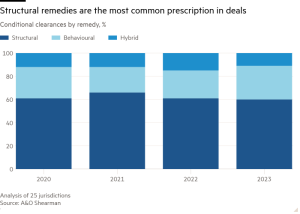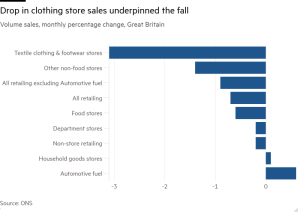can posh gifts buy foreign influence in America?
Nanjing-style salted ducks, delivered to the parents of a governmental aide in New York. Luxury handbags and Michelin-starred sushi dinners purchased for a former intelligence analyst in Washington. A complimentary stay in a marble-floored penthouse suite in a swanky Istanbul hotel for an ambitious New York City politician. And a gleaming Mercedes-Benz C 300 convertible, gifted to the wife of a US senator in New Jersey.
These are among the many colourful alleged kickbacks detailed in a series of recent indictments by the US Department of Justice, as part of a crackdown by prosecutors on what they say are attempts by foreign officials to buy influence in the halls of American power. They are also at the centre of a legal fight over the line between legitimate gifts and illegal bribes.
In just 12 months, criminal cases have been filed against senior Democratic senator Bob Menendez, who was convicted this summer of accepting gold bars and cash to act on behalf of Egypt; Linda Sun, a former aide to two New York governors who allegedly did China’s bidding in exchange for favourable treatment for her husband’s seafood business; and Sue Mi Terry, a former CIA analyst and security official who prosecutors claim was gathering information for South Korea, accepting sweeteners including a $2,845 Dolce & Gabbana coat.

In May, Texas congressman Henry Cuellar was charged with accepting almost $600,000 in bribes from Azerbaijan and a Mexican bank, allegedly using the proceeds to buy a $12,000 gown, among other items. And last week, federal prosecutors in New York filed their most explosive foreign bribery case in recent years — indicting mayor Eric Adams for allegedly helping the Turkish government in exchange for campaign donations and business-class flights, hotel suites and other travel-related gifts.
Menendez plans to appeal against his conviction, and all the other defendants have pleaded not guilty. While the charges against them differ in detail and severity, they highlight how easily — and sometimes cheaply — foreign powers have allegedly been able to curry favour with decision-makers at influential US institutions.
The nebulous nature of the alleged crimes also makes them hard to police. As a lawyer for Adams, Alex Spiro, protested soon after the Democratic mayor was charged, officials are plied with gifts all the time, but they have to be accepted specifically “in exchange for a benefit” in order to fall foul of bribery laws.
He cited a recent Supreme Court decision which found that bribes are only illegal when accepted by politicians as a quid pro quo for official acts.
“Gratuities are not federal crimes,” Spiro told reporters this week. “Congressmen get upgrades, they get corner suites. They get better tables at restaurants, they get free appetisers, they have their iced tea filled up. That’s just what happens.”
With the exception of Adams, recent cases have also relied on a largely untested statute: the Foreign Agents Registration Act, designed to criminalise those who fail to disclose lobbying on behalf of a foreign power. Although first enacted in the lead-up to the second world war, when the US feared malign influence by Nazi-backed officials, Fara was not particularly rigorously enforced. Between 1966 and 2015, there were just seven prosecutions under the statute.
The spate of Fara indictments in recent years is part of what DoJ official Lisa Monaco has called an aggressive effort to “bolster transparency of foreign activities in the United States”.

“The discovery of the Russian hacking and influence campaign targeting the 2016 election really caused the Department of Justice and the entirety of our national security apparatus to wake up,” said Howard Master, a former federal prosecutor who worked on corruption cases in New York, who is now at Nardello & Co. There was, he added, “clearly a lot of complacency”.
The question now is how broadly the Fara net can be cast.
“Since the dawn of the Republic, we prosecute spies when we catch them and the other side prosecutes our spies,” Master said. “The issue is, how do you deal with people who are plied with gifts and salted duck . . . that are not registered spies, but influenced to help a foreign government.”
While some recent Fara prosecutions, such as those of Menendez and former Donald Trump campaign chair Paul Manafort, have ended in convictions, the DoJ has run into trouble proving that some defendants “wilfully” failed to register as foreign agents, which is required under the law. There are also a number of exceptions to the Fara requirements — for academics, lawyers and purely commercial activity — which make prosecutors’ lives difficult.
In 2022, financier Tom Barrack was cleared of Fara violations during the Trump administration, while an appeals court this year threw out a civil Fara suit against casino magnate Steve Wynn. The conviction of Bijan Kian, a former business partner of Trump national security adviser Michael Flynn — for alleged illegal lobbying on behalf of Turkey — was thrown out by a federal judge last year, and the DoJ declined to retry him.
The recent indictments of Sun, Terry and others show the government is “likely anxious to prove that Fara still has teeth and will be prosecuted and [is trying] to get some victories under that statute”, said Kristin Mace, a former chief of the criminal division in the US attorney’s office for the eastern district of New York, who is now at Covington & Burling.

In order to do so, prosecutors are charging cases where the alleged bribes, while not insignificant, pale in comparison with the billions paid by corporations prosecuted under the Foreign Corrupt Practices Act, another law revived by the DoJ in recent years.
“One way to understand the small-dollar stuff is that if you have an opportunistic approach, as the government of Turkey or the government of China, it’s going to pop up with people who are actually quite corruptible at low levels,” said Zephyr Teachout, a professor at Fordham Law School who has long researched corruption and Fara violations.
The alleged benefits to foreign powers, as outlined in the indictments, are also relatively minor. Sun is accused of blocking Taiwanese officials from communicating with the New York governor, and removing mention of the oppressed Uyghur population from a New Year message. Terry is alleged to have passed on some notes from a private meeting with Antony Blinken, US secretary of state. Menendez, among other actions, drafted a letter for Egypt to send to US senators urging them to release aid.
Adams, who is charged with bribery among other counts, is accused of pressuring the New York fire department to approve the opening of a Turkish embassy building before it was safe.
Such actions, Teachout added, are not always “small bore” for foreign powers and might be part of a broader, hidden strategy of public influence. “There is an overall web being woven, and it will always necessarily be in the small quos of statements and gestures,” she said.
#posh #gifts #buy #foreign #influence #America




